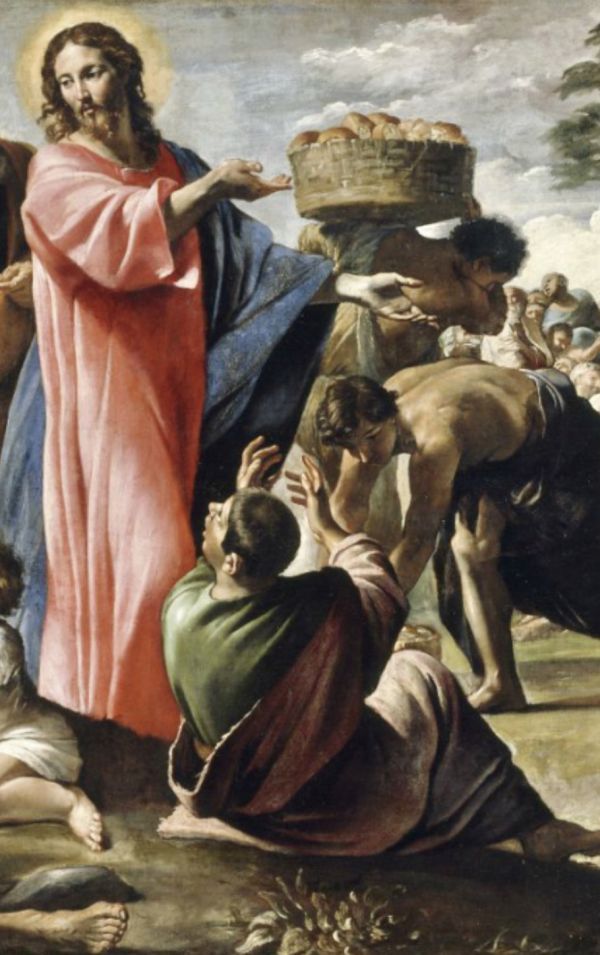(Mt 14:13-21)
Jesus wants that contributions, resources and abilities make synergy; that they offer themselves in service and come unite for the life of multitudes (vv.13-15.19).
The Eucharistic gesture - “breaking the existence” - says: new heavens and earth do not correspond to the world in which everyone hastens to reap for himself or his circle, in order to grab the maximum of resources.
Even the Apostles - called by Jesus and still at a safe distance from Him - are not the owners of the Bread, but those who must feed everyone (v.16), to create abundance where it’s not.
They must share, not command. And, in order to avoid impoverishment and damage to happiness, they must place themselves in a logic of overcoming.
The Son reflects God’s plan in compassion for the crowds in need of everything. Yet his solution does not fly over us - simply by wiping tears or erasing humiliations.
He invites us to use what we have, although it may seem ridiculous. But He teaches that shifting energies creates prodigious results.
Thus we respond in Christ to the great problems of the world: recovering the condition of ‘viator’ man - being in passing - and sharing goods.
Our real nakedness, the vicissitudes and experience of many brothers, different ones, are resources not to be evaluated with mistrust.
And the Lord disagrees with the idea that each gets off on his own (v.15).
He imposes on his intimates that «the crowds» (plurals) lie down in an atmosphere of abundance (v.19) as did the gentlemen and free people at solemn banquets.
He wants and insists that it’s first of all the disciples to serve (v.19), not other slaves.
And perhaps the most astounding detail is that to none of those present imposes preventive gestures of purification, as was customary in selective religiosity.
Before the meal it postulated the ritual ablution: a ceremony that emphasized a sacral detachment between pure and impure.
The only task of the disciples is to distribute Food to be shredded, sifted and assimilated personally, to build a new world.
In order to present ourselves before God, in religion we have a long rigmarole of fulfilments to observe, which sometimes normalise us.
On the journey of Faith, it is the gratuitous Encounter with the Lord that makes us grow and complete, making each one perfect and unconditionally pure.
In this, extracting authentic Pearls; just from our eccentricities character - those that are detached from the millimeter manners.
His Kingdom? Reign of invited and brothers, also disagree. No master or ruler - even if quicker and more able to manage himself.
The Eucharist thus remains an Appeal to real Conviviality [of differences as they are] and an evergreen Call not to be satisfied with individual devotions or with a harmonisable but empty spirituality.
To internalize and live the message:
How does the Eucharistic gesture speak to you of the Revolution of Tenderness, and of your Call by Name through the Church?
[Monday 18th wk. in O.T. August 5, 2024]












